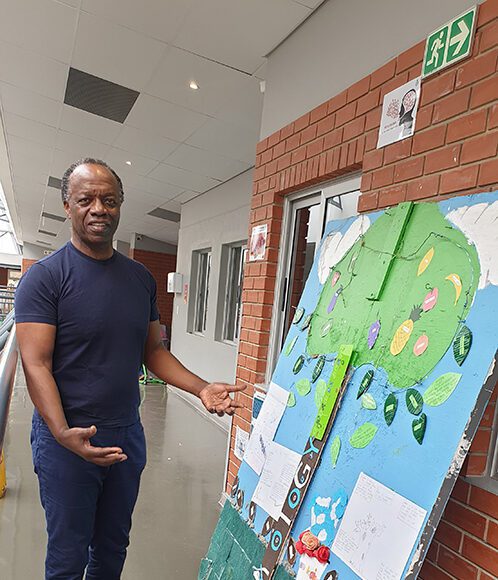He teaches Grade 2 pupils about money at what he describes as a learning laboratory for solving South Africa’s education challenges – and Sizwe Nxasana says it is the most rewarding work of his life.
The 65-year-old chartered accountant is studying for a PhD in education and is the founder of Future Nation Schools. Not only is he driving a new model of education in SouthAfrica with project-based learning, but also blazing a new trail in shaping the future of education for the entire continent.
“This is the most exciting time of my life. I like solving problems. For me, you either complain, emigrate, or choose to become part of the solution.”
The student at Aalborg University in Denmark said because there was no institution in South Africa offering project-based learning or problem-based learning (PBL) as a specialisation, he had to look to Scandinavia to do his course.
“Aalborg University are hosts of the Unesco [United Nations Educational, Scientific and Cultural Organisation] centre for project-based learning; they are authorities in this approach to learning and teaching,” he said.
“PBL is using inquiry as a methodology for teaching. The role of the teacher in the classroom is that of facilitator,” he said. “It is about empowering pupils to inquire, discover, research, solve problems, work with one another, and think critically. Therefore, as a teacher you need certain skills to enable that process to happen.
“The Grade 2s follow the exact methodology I’m using for my PhD, which involves literature review, analysing the literature or data, using some methodology and arriving at research conclusion. Sometimes you solve a problem.
“At our schools we develop this kind of thinking from a young age,” he said.
Clearly, the experiment he is conducting with Future Nation Schools – which he established in 2017 – is a success. The first cohort of Grade 8s, who wrote their matric exams last year, achieved a 100% pass rate.
The school has two campuses, in Fleurhof, southwest Joburg, and Lyndhurst, in the northern suburbs. The Fleurhof campus, whose pupils come mainly from Soweto, achieved 100% bachelors pass rate, while the Lyndhurst campus achieved 93% bachelors pass rate.
“I’ve always wanted to make a contribution in the big system,” said Nxasana, who founded the National Education Collaboration Trust in 2012, which brings government, business, civil society and teacher unions to solve education problems.
“The National Development Plan says education is a societal issue,” he said. “As a person and as a family, we thought about how we can create a model that would become almost like a laboratory of what we can do to solve the five problems in
education in South Africa and the continent,” Nxasana said.
He said he established the Sifiso Learning Group in 2017 “to solve the problem of teacher training; the continuous professional development of teachers that are already in the system in a fast-changing world”.
“At the same time, we created Sifiso EdTech, which is solving the tech problem. We created Sifiso Publishers, which is trying to solve the problem of producing content from indigenous writers we can use for learning and teaching. “We are now busy with building our own teacher college to solve the problem of teacher training in [project-based learning].”
“The idea of Future Nation Schools, unlike other private schools preaching come to us because the public school system is failing, we say, let’s create learning communities,” he said.
“While it’s great that our schools benefit those parents who can afford our fees, the real issue is how do we include and provide the knowledge and skills and competencies to a lot more young people out there given the triple challenges of poverty, unemployment and inequality,” he said. “We have more than 13-million kids across 25 000 schools. What can we do to help them?”
“We take our own money as family and invest it to try and solve these five problems which we hope will make a contribution to reducing inequality, poverty and unemployment,” he said.
“We are solving the tech problem by supporting the government with the rollout of an artificial
intelligence, coding and robotics course in public schools,” he said.
Some of the most prestigious private schools and universities were coming to the school to see first-hand how they Future Nation Schools apply PBL in the classroom, Nxasana said.
For more education news from Sunday World, click here.
Follow @SundayWorldZA on Twitter and @sundayworldza on Instagram, or like our Facebook Page, Sunday World, by clicking here for the latest breaking news in South Africa. To Subscribe to Sunday World, click here




